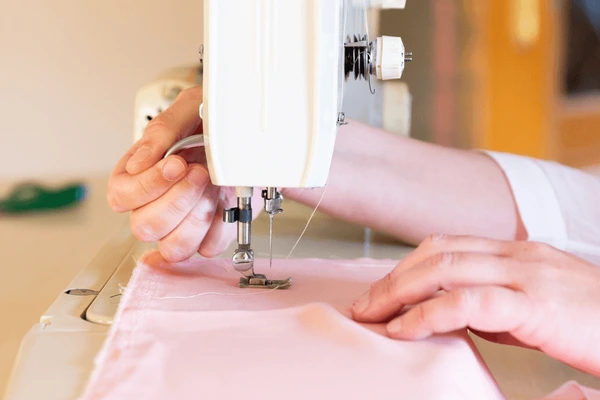Couture sewing courses offer an in-depth journey into the intricate world of high-fashion sewing techniques, focusing on detail-oriented, hand-crafted garment construction typically associated with luxury fashion. These courses appeal to individuals who are passionate about fashion design and want to refine their skills to create custom, high-quality garments. They emphasize craftsmanship, precision, and a dedication to perfection, hallmarks of the couture fashion world.
What to Expect in Couture Sewing Courses
A couture sewing course is structured to take students through the fundamentals of couture techniques, often starting with a review of essential hand-stitching methods that differentiate couture from mass-produced fashion. Classes typically cover hand sewing methods, including basting, hemming, finishing, and various types of embroidery and beading. These techniques are crucial in couture, as they create invisible seams and smooth finishes that characterize luxurious, hand-crafted garments.
Another major aspect of couture sewing courses is pattern-making and garment fitting. Unlike typical sewing classes, where standardized patterns are used, couture courses teach students how to create custom patterns to fit specific body measurements. Pattern drafting, marking, and fabric cutting are all covered extensively, as achieving a perfect fit is one of the hallmarks of couture fashion. In many courses, students work on creating a 'muslin,' a practice garment that allows designers to check fit and design elements before cutting the actual fabric. This stage is crucial as it enables adjustments, ensuring a flawless finish on the final piece.
These courses also emphasize fabric knowledge and selection, focusing on how different materials affect garment construction and wearability. Luxury fabrics like silk, velvet, and chiffon are frequently used in couture fashion, and knowing how to work with these materials is essential. Instructors guide students through handling delicate fabrics, learning about the right threads, needles, and sewing techniques for each, and exploring how to use embellishments effectively. Students also learn about layering, lining, and the importance of structure in couture garments.
Advanced Techniques and Creativity in Design
For those with intermediate sewing skills, advanced couture sewing courses delve into complex techniques like pleating, ruching, bias draping, and incorporating unique textures. This is where students learn to bring creative vision to life by experimenting with different shapes, textures, and finishing methods. Lace appliqué, fabric manipulation, and elaborate hemming techniques such as rolled hems are taught, enabling students to add their own touches to designs.
Embroidery and embellishment are key components of many couture courses. Instructors often introduce students to beading, sequins, and hand embroidery, allowing them to understand how intricate details elevate a garment. For some courses, this may even involve learning about embellishment placements and how to add custom trims, laces, and other decorative elements by hand. Students explore embellishments and learn to arrange them harmoniously to enhance the garment’s design.
Another essential skill taught in couture sewing courses is finishing and pressing. Couture garments require careful pressing to maintain structure and drape, and students learn how to use pressing tools like clappers, hams, and rolls to achieve polished results. Techniques like the “bagged lining” and Hong Kong seams help give a garment a professionally finished look on the inside and outside.
Course Structure and Project Work
Couture sewing courses usually follow a project-based approach. Students start with smaller, skill-building projects like constructing bodices, sleeves, or skirts, applying one technique at a time. As they progress, they may create a final, fully realized garment that incorporates all learned techniques. By completing a full project, students gain the confidence to work on more complex pieces in the future.
Many couture sewing courses are offered both online and in-person. Online courses often provide video demonstrations, downloadable guides, and live Q&A sessions with instructors, while in-person classes offer hands-on instruction, allowing students to interact closely with mentors. Both formats emphasize meticulous practice, as couture sewing demands patience and repetition to achieve mastery.
Who Can Benefit from Couture Sewing Courses?
Couture sewing courses are suitable for anyone passionate about sewing, fashion design, and garment-making. They’re especially beneficial for those interested in starting a career in high fashion, tailoring, or costume design. Professional seamstresses, aspiring designers, and even hobbyists who want to create one-of-a-kind, bespoke clothing find immense value in these classes.
In sum, couture sewing courses provide a deep dive into the world of luxury garment creation, with a focus on precision, creativity, and mastery of hand-crafting techniques. These courses are more than just skill-building—they offer a unique journey into the artistry of fashion, where students learn to create beautiful, timeless pieces that embody the spirit of couture.
